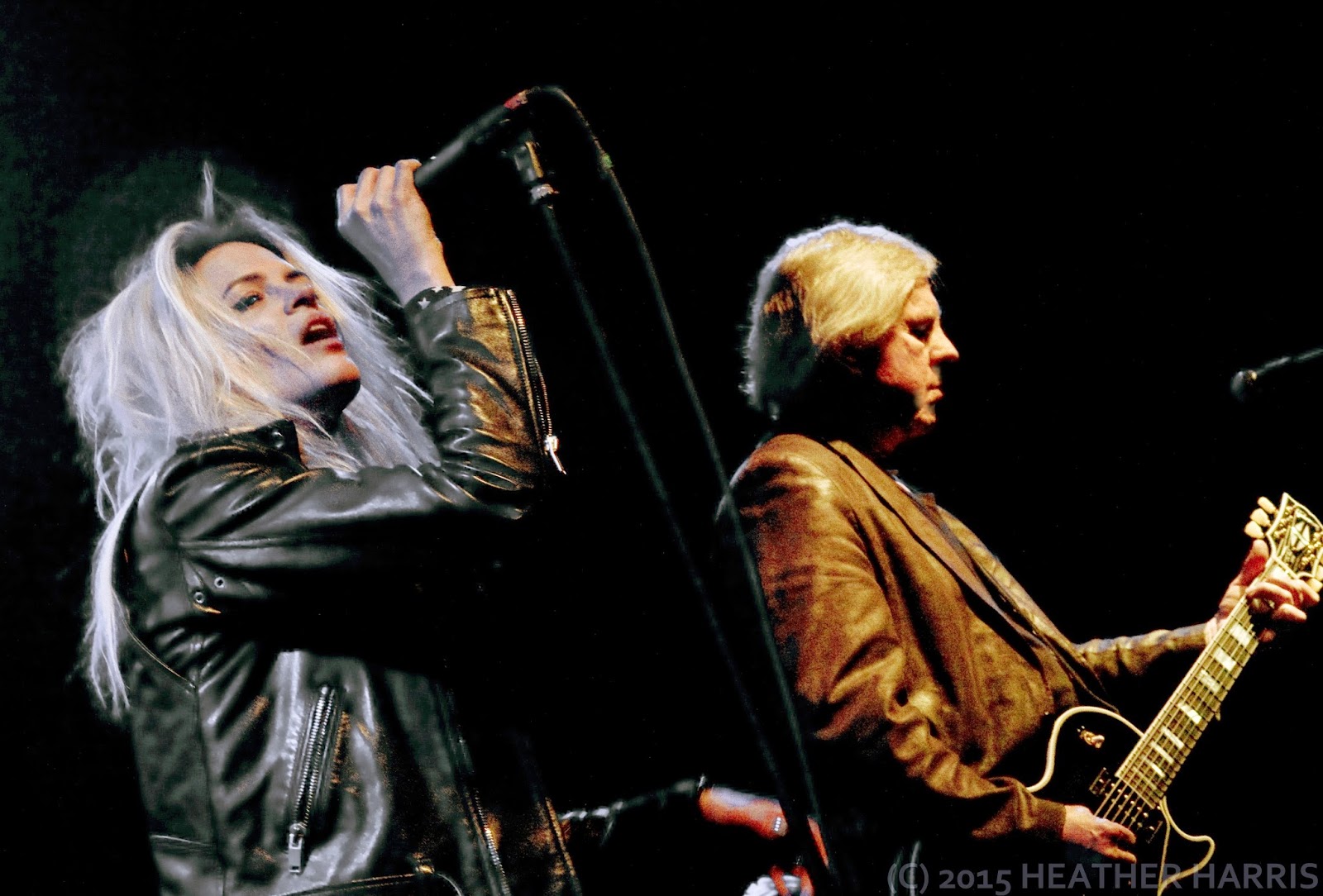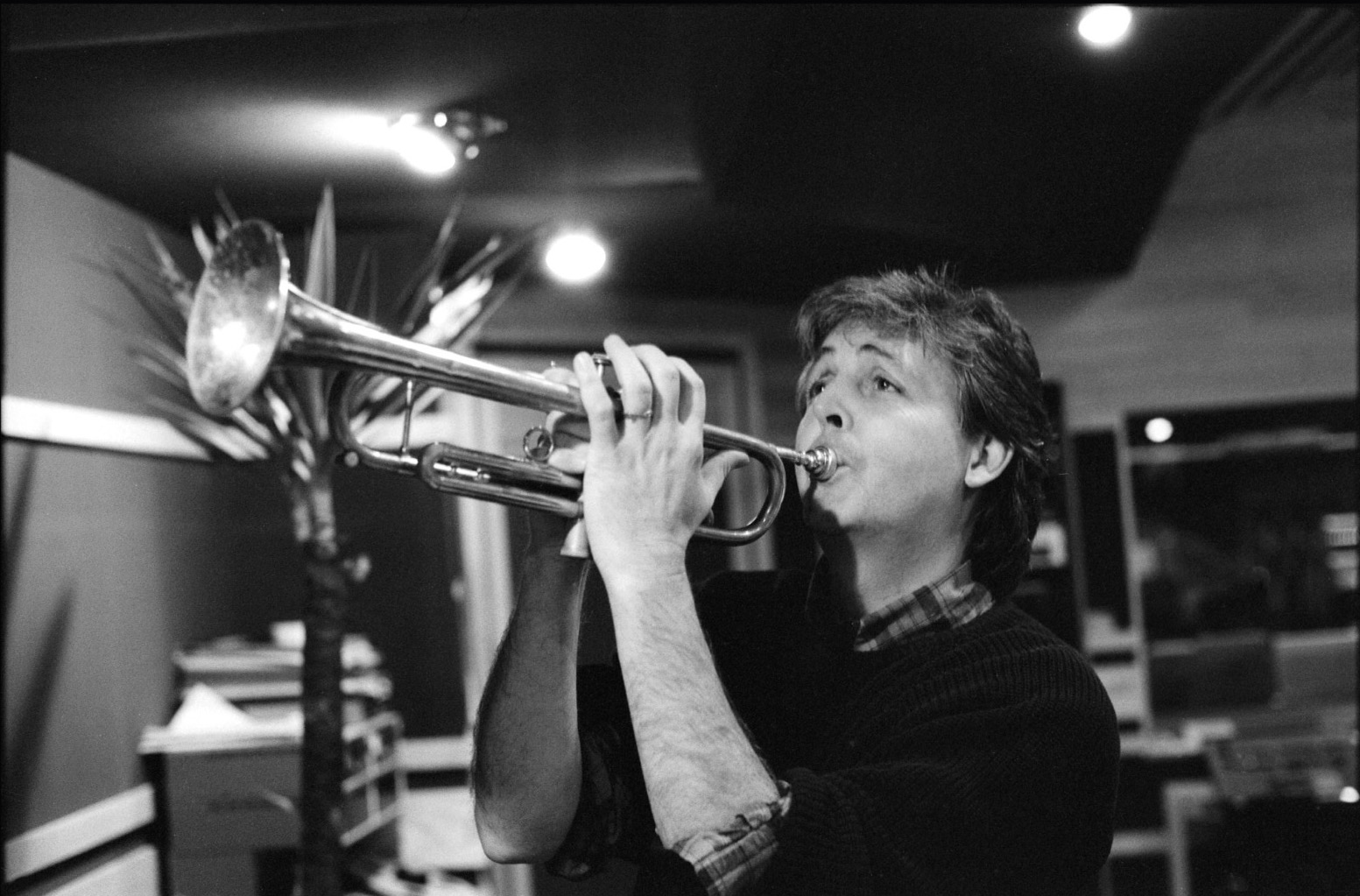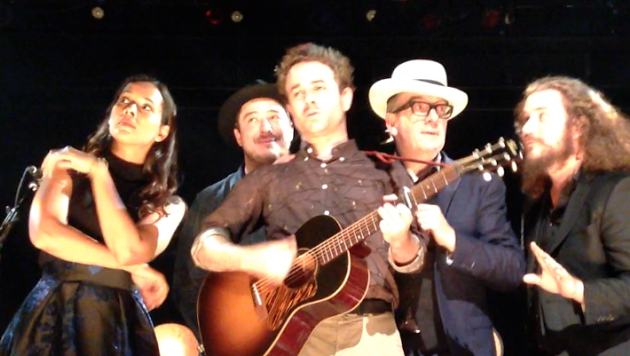
By RICK SCHINDLER
My wife winces when I play The Boy Named If. The latest album by Elvis Costello and the Imposters sounds “muddy,” a music-expert friend of mine complains.
No, this is not easy-listening EC: There are no collaborations with Burt Bacharach like the ones on 2020’s Look Now. Instead there are distorted vocals on the title track, a squalling guitar solo on “What If I Can’t Give You Anything But Love?” and raucous music-hall hoots and hollers on “The Man You Love to Hate.” The album confronts, insists and demands. But it also pays rich rewards.
Hammering guitar slaps you awake right at the start of the opening track, “Farewell, OK,” whose driving beat recalls “5ive Gears in Reverse” on Costello’s 1980 homage to classic R&B, Get Happy!! In fact, much of The Boy Called If evokes EC’s early work with the Attractions (two of whom, drummer Pete Thomas and keyboardist Steve Nieve, still back him as Imposters more than 40 years later). “Mistook Me for a Friend,” for instance, has the driving beat and clamoring organ of “Radio Radio.” I suspect the album’s frequently coarse sonic texture is a deliberate decision to remind us of the angry young Englishman who long ago decried “fools tryin’ to anesthetize the way that you feel” – a lyric that has become only more relevant in the age of Spotify.

Every song tells a story
The Boy Named If is also a throwback in another way: It’s a concept album. But there’s a twist: Instead of a rock opera, it’s a musical collection of short stories. Its deluxe edition comes with an 88-page book written and illustrated (in faux-Picasso style) by Costello to reflect and extend the narratives of the songs.
“My Most Beautiful Mistake” is the saga of a waitress who “caught the eye of a guy passing by” but tells him, “I’ve seen your kind before in courtroom sketches.” “The Difference” is a dark tale that hints none too subtly at incest and mutilation. “What If I Can’t Give You Anything But Love?” is a married man’s plaint to his lover near the end of their affair.
But the real protagonist of “The Boy Named If” is Elvis Costello himself. In the title track, whose cadence conjures The Beatles’ “Come Together,” he deprecates himself as “a lucky so and so, a fortunate stiff,” as well as a phantom chameleon who’s “vivid as a summer’s day, then never seen again.” If he disappears, he asks, “Who’ll pay the taxman? Who’ll place the blame?” – an echo of The Beatles’ “Lady Madonna” (“Who finds the money when you pay the rent?”).
In various guises, Costello is arguably the hero or villain of all the songs on The Boy Named If. Perhaps this story collection is actually autofiction in disguise, a self-portrait whose painter exposes many of his own warts while saying “Farewell, OK” to his intemperate younger self.
The album’s lyrics are less punny than many of Costello’s, yet they’re still complex and clever in ways that reveal themselves gradually upon repeated listening. And as they do, the choruses burrow into your brain: The man has not forgotten how to write an inescapable hook.
I may never like “The Man You Love to Hate,” but “Paint the Red Rose Blue” easily stands among the most touching ballads Costello has ever written. If you’re willing to meet it halfway, The Boy Named If is an album you’ll learn to love.
Check out ‘The Boy Named If’ by Elvis Costello and The Imposters here:



